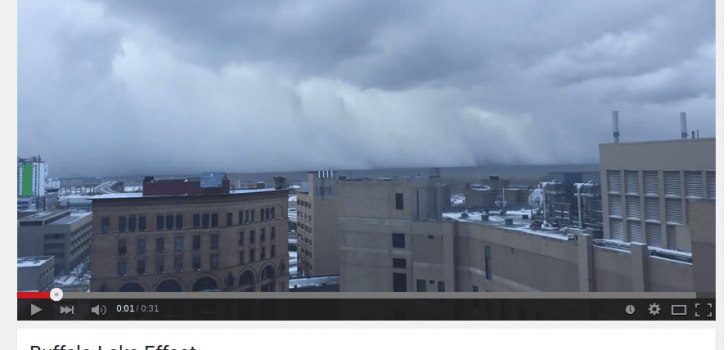CNN and Canada’s CBC and will face legal action after the two media houses allegedly took a 31 second video clip from YouTube and utilized it in their news broadcasts without permission. Besides allegations of copyright violation, the media giants face accusations that they infringed the anti-circumvention provisions of the DMCA copyright law.
While millions of members of the online community upload video clips daily without expecting anything in return, it is possible for trendy content to generate much revenue through YouTube’s account monetization plan.
Alfonzo Cutaia, a resident of New York, used the program in 2014 when he observed that he had a trendy video, but some news organizations allegedly failed to play by the rules and unfortunately, things have turned out messy.
It all started to unfold last year when winter storm ‘knife’ concealed sections of New York and its environs under many feet of snow. On November 18th, from his Buffalo office, Cutaia was watching the snowstorm flowing over Lake Erie and he thought it wise to record the unusual events using his mobile phone.
Realizing the potential of his video to attract interest, Cutaia decided to upload his 31 second video to YouTube. He named it “Buffalo Lake Effect” and chose to make revenue through the account monetization plan. Cutaia chose “Standard YouTube License” and watched the number of hits grow by the hour.
The video performed extremely well and after one day, the recording had more than 513000 views. On the second day, things changed so spontaneously with the clip attracting 2.3 million views and soon, Cutaia was receiving many requests from news organizations including ABC, CBS, CNN, AP, and Reuters – to be allowed to use his recording.
However, according to a court case that Cutaia filed this week in a New York court, on November 18th, CBC aired the recording on the internet without authorization, with the organization’s logo superimposed.
After a series of complains to CBC about the persistent illegitimate use of the video, last month, CBC told the New York resident that it acquired the recording from CNN on a license valid for 10 days. However, Cutaia maintained that CBC and its partners had used the video for many months, after obtaining the license from CNN, who were also not licensed to use the clip.
In his lawsuit, Cutaia seeks lawful injunctions against the two media giants to stop further illegal and unauthorized use of his recording. Seeking appropriate damages, Cutaia also alleges that the news houses willfully and intentionally infringed copyrights.
Amusingly, the court case also claims that both CNN and CBC were in violation of the DMCA when the news organizations ‘liberated’ the video directly from the YouTube website and made it available for viewing elsewhere.
The lawsuit reads, “In order to infringe the Storm Video, CBC [and CNN] circumvented Cutaia’s technological measures limiting access to the Storm Video, without authorization, in violation of 17 U.S.C. § 1201(a)(1)(a).”
It continues to say, “By its reproduction and alteration to the Storm Video, CBC [and CNN] intentionally removed and/or altered the copyright management information of the Storm Video, without authorization, in violation of U.S.C. § 1202(b)(1)”
The two media houses are also facing legal action for distributing the recording despite having full knowledge that copyright was being violated.
Summarily, Cutaia seeks lasting injunctions against the two internationally recognized media houses, blames them of varying extents of copyright intrusion, and demands a jury trial to establish the damages.
Meanwhile “Buffalo Lake Effect” is performing extremely well on the YouTube system. By July the recording had 3.68m hits.
Stay Connected